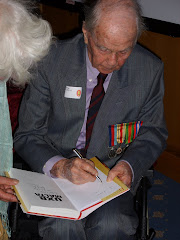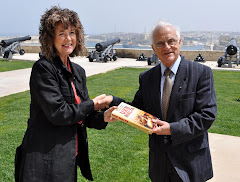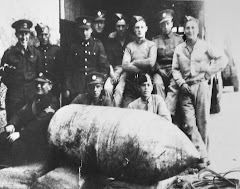“I was always aware that I might be killed, but you had a job to do. You couldn’t allow yourself to be overcome by your feelings.” So says former Lt George Carroll, one of the oldest surviving bomb disposal officers of the London blitz, on Channel 4 documentary ‘Blitz Street’.
92 year old George Carroll will be guest of honour at a gathering to mark the 70th anniversary of Army bomb disposal on Tuesday 11 May, at the Royal Engineers (RE) Museum in Gillingham, Kent. He will be formally presented with a copy of ‘UXB Malta’ in memory of his service as one of the handful of men who dealt with 7300 unexploded bombs in just two years of World War 2, often under enemy fire.
George Carroll will meet and compare his wartime experiences with former officers whose careers span seven decades of bomb disposal. Joining them will be the families of those who served in the blitz on Malta.
At noon they will unite in remembering the many who have lost their lives in this hazardous occupation, and acknowledge the courage of those still dealing with disabilities resulting from their service. Losses were heaviest in the first five years. In 1940 the average life expectancy of bomb disposal officers was ten weeks. By the end of the war 490 officers and men had been killed and 209 injured.
The challenge they face has changed little since then: an enemy constantly developing new bombs designed to kill them. George Carroll still vividly remembers dealing with his first unexploded bomb, three weeks before he had any training. As the Germans introduced ever more complex fuzes, he learned as he went along – and survived – even when a Messerschmitt pilot strafed the ground with bullets while he was working on a 1000kg Hermann bomb.
Today’s bomb disposal personnel undergo extensive training and preparation before being deployed on active service. But in Iraq and Afghanistan they have to deal with the deadly unpredictability of Improvised Explosive Devices (IED, each one individually made in an attempt to outwit them.
Yet despite the years which divide them, it seems that bomb disposal men have at least one thing in common. When described as heroes, they all give a similar response: they were ‘just doing a job’.
Subscribe to:
Post Comments (Atom)






No comments:
Post a Comment